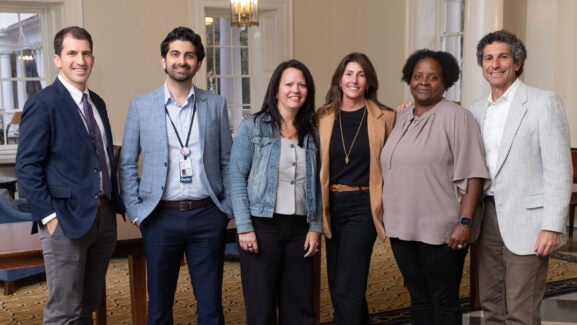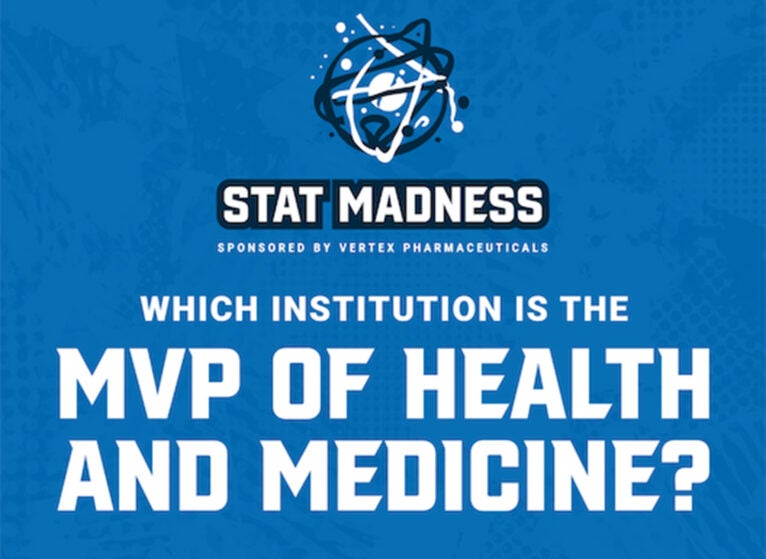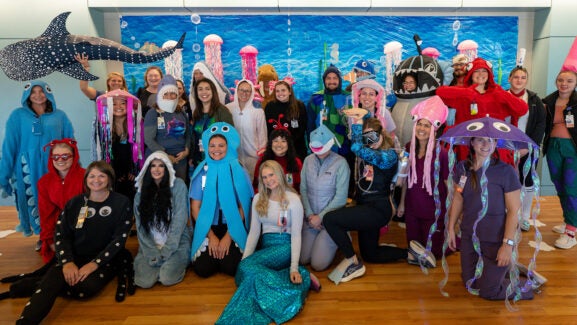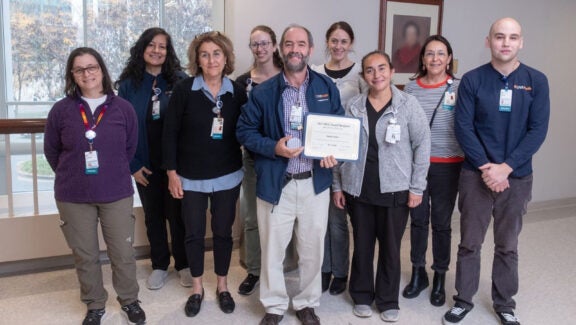

2 UVA Discoveries Advance to Sweet 16 in Search for 2022’s Biggest Biomedical Advance
Not one but two UVA Health discoveries have advanced to the Sweet 16 in STAT Madness, an online competition to crown 2022’s biggest biomedical advance.
An Alzheimer’s discovery from the lab of UVA’s John Lukens, PhD, edged out another strong UVA contender, a breast cancer finding from the lab of Melanie Rutkowski, PhD. The head-to-head matchup meant that, at most, two of the three discoveries from UVA’s School of Medicine selected for STAT Madness this year could advance to the Sweet 16.
Both Lukens’ and Rutkowski’s discoveries enjoyed strong backing in the online balloting, with the vote split almost 50-50 throughout the weeklong round. The contest proved a nail-biter, with the victor only apparent when the round ended at midnight a few hours ago.
Lukens discovery is joined in the Sweet 16 by important research from UVA’s Kenneth Walsh, PhD, that may help explain why men typically die several years younger than women. Walsh’s contest was also hard-fought, with the UVA finding nosing by a University of Pennsylvania Perelman School of Medicine contender. In the end, UVA took 51% of the vote, earning it a second slot in the Sweet 16.
UVA’s two contenders now go head-to-head, meaning one is guaranteed to advance to the Elite 8. But which will it be? Your votes will decide that. You can vote once per day.
STAT Madness is sponsored each year by the STAT health news site to increase awareness of biomedical research and its importance in the battle against disease and for improving human health and longevity. Both of UVA’s contenders target major health concerns:
FIGHTING ALZHEIMER'S: Neuroscience researchers led by Lukens discovered a molecule in the brain responsible for orchestrating the immune system’s responses to Alzheimer’s disease and multiple sclerosis, potentially allowing doctors to supercharge the body’s ability to fight those and other devasting neurological diseases. The molecule directs immune cells called microglia to remove plaque buildup associated with Alzheimer’s and prevent the debris buildup that causes MS. The findings could let doctors augment the activity of microglia to treat or protect patients from the toxic buildup thought to be responsible for memory loss and impaired motor control in neurodegenerative diseases.
PREVENTING HEART FAILURE: The loss of the male sex chromosome as many men age causes the heart muscle to scar and can lead to deadly heart failure, research from Walsh and his collaborators revealed. The finding may help explain why men often die years younger than women. The new discovery suggests that men who suffer Y chromosome loss – estimated to include 40% of 70-year-olds – may benefit from an existing drug that targets dangerous tissue scarring.
As STAT Madness heats up, Hoo faithful will need to remember to cast their votes each and every day if UVA is to go all the way. If you haven’t already, bookmark that bracket. And to keep up with the latest medical research news from UVA, subscribe to the Making of Medicine blog.
Latest News



